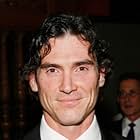Chronicles the financial meltdown of 2008 and centers on Treasury Secretary Henry Paulson.Chronicles the financial meltdown of 2008 and centers on Treasury Secretary Henry Paulson.Chronicles the financial meltdown of 2008 and centers on Treasury Secretary Henry Paulson.
- Nominated for 11 Primetime Emmys
- 5 wins & 31 nominations total
- Director
- Writers
- All cast & crew
- Production, box office & more at IMDbPro
Featured reviews
Director Curtis Hanson is true to form in this film as it was adapted from Andrew Ross Sorkin's book of the same name. The performances in the film are spot on especially that of William Hurt as treasury secretary Henry Paulson and veteran Paul Giamatti as fed chair Ben Bernanke. Also it was nice seeing James Woods and Cynthia Nixon("Sex and the City")in small roles, plus a delight was Ed Asner as Warren Buffet. This film proved what we all know the big financial companies and government people are tied in together and corrupt and the average Joe foots the bill for their escape as they clearly are "To Big To Fail"
My problem with the film is that it makes it look like the politicians and CEOs involved in the decisions actually cared and got emotional about them. In reality, that is not the case. The decisions which greatly affected the lives of millions of Americans had little, if any, effect on the people who made them--hence the distinguishable apathy in their public appearances. These men and women are among the richest in the world, and they knew they would stay that way regardless of how the crisis played out. They cared about the crisis only to the extent that they needed not be late for their dinner dates.
All animals are equal But some animals are more equal than others.
The direction by Curtis Hanson is razor-clean cut, and the performances, especially by James Woods, Paul Giamatti and William Hurt underscore the irony that not one of the self-serving "public servants" has "served" one single day of jail time and continue to live their over-the-top, elegant lifestyles.
The effective use of actually news footage from our 24/7 news cycle serve as a percussive soundtrack as we watch the financial worlds of your "off the Street" American citizens self destruct at the hands of the Bush administration.
Thank you HBO for continuing to do what you have done so well for so many years!
The film makes a point that Paulson sold all his Goldman stock before becoming Treasury Sec, but fails to point out that he was excused from all taxes on the sale, which saved him upwards of $50 million.
The film also whitewashes Paulson's $150 billion AIG bailout, claiming that AIG owed money to almost everybody in the world. In fact, AIG's largest creditor was, that's right, Goldman Sachs. Paulson failed to negotiate a hard-nosed payout of AIG's obligations, such as offering creditors 50c on the dollar, which the creditors would have had no choice but to accept. This would have saved US taxpayers a cool $75 billion. But it would have hurt Paulson's pals at Goldman.
My point being, Paulson was thoroughly compromised, and managed to feather his own nest and that of his old pals. What next? A stirring depiction of Dick Cheney's altruistic hiring of Halliburton in Iraq? This shortcoming aside, the film clips along nicely, and it's fun to see so many name actors portraying the Wall Street titans. James Woods is a perfect Dick Fuld.
This movie explained it clearly - and, most shockingly, somebody made a movie about banking regulations that was interesting and engrossing.
Excellent cast at the top of their game - and first rate writing and directing. Check this one out!
(Disclaimer: If you need car chases, boobs-and-butts, terrorist bombings, food fights or sex and drugs to enjoy a film, skip this one! It's not going to be up your alley!)
Did you know
- TriviaTITLE DROP: Mentioned by Hank Paulson character while lecturing his aide ("Here's your too big to fail").
- GoofsLaila Robins (playing the French Minister of Finance Christine Lagarde) begins her scene speaking in a French accent, and ends it with a decidedly British accent.
- Quotes
Ben Bernanke: I spent my entire academic career studying the Great Depression. The depression may have started because of a stock market crash, but what hit the general economy was a disruption of credit. Average citizens unable to borrow money, to do anything. To buy a home, start a business, stock their shelves. Credit has the ability to build a modern economy, but lack of credit has the ability to destroy it, swiftly and absolutely. If we do not act, boldly and immediately, we will replay the depression of the 1930s, only this time it will be far, far worse. We don't do this now, we won't have an economy on Monday.
- ConnectionsFeatured in Ebert Presents: At the Movies: Episode #1.18 (2011)
Details
- Runtime1 hour 39 minutes
- Color
- Sound mix
- Aspect ratio
- 1.78 : 1
Contribute to this page









































